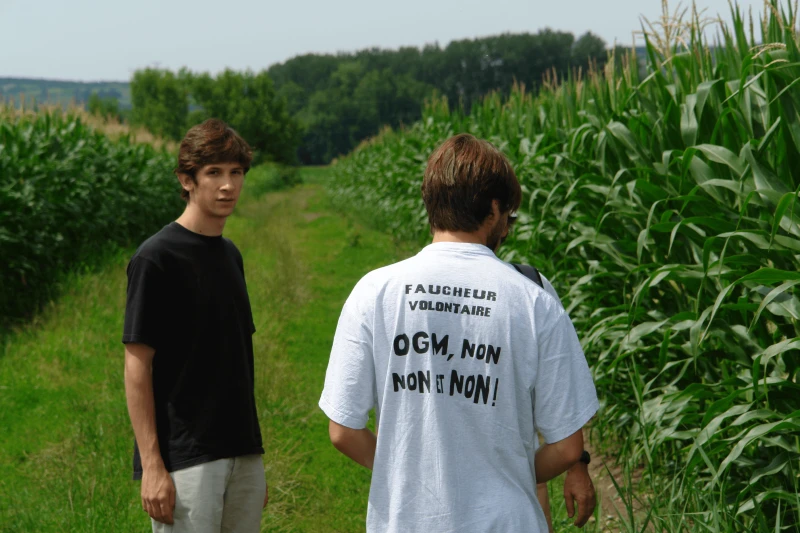Viewpoint: Why does the French public fully embrace gene editing to cure diseases, but remain wary of use in agriculture, where it could help fight hunger?
Viewpoint: Why does the French public fully embrace gene editing to cure diseases, but remain wary of use in agriculture, where it could help fight hunger?


French opinion has an ambivalent relationship with scientific progress. Welcomed with enthusiasm in the field of human biology, it is, for example, perceived with much more reserve in that of plant biology. It is all the more paradoxical since when it comes to the control of living things, our researchers stand out worldwide.
The techniques of selection and controlled mutation of plants called NBT (for “new breeding technologies”) represent a turning point for our agriculture. Unlike GMOs (unfortunately discredited by pseudo-studies which were only shams), genome editing techniques, directed or random mutagenesis, do not transfer foreign genes and are limited to a modification of the existing, which can optimize or cancel a characteristic already present in the genome of the organism.
…
In principle, these methods of genome editing and modification of living organisms, with the aim of making plants more resistant, less vulnerable to certain pests, more nutritious or even less water-intensive, have been practiced since the Neolithic era. But where it took hundreds of years of trial and error to find the right variety, science can now do it more precisely, quickly and reproducibly. And this is excellent news, in light of the upheavals that our agriculture will undergo under the effect of global warming.
[Editor’s note: This article was originally published in French and has been translated and edited for clarity.[
This is an excerpt. Read the original post here

 | Videos | More... |

Video: Nuclear energy will destroy us? Global warming is an existential threat? Chemicals are massacring bees? Donate to the Green Industrial Complex!
 | Bees & Pollinators | More... |

GLP podcast: Science journalism is a mess. Here’s how to fix it

Mosquito massacre: Can we safely tackle malaria with a CRISPR gene drive?

Are we facing an ‘Insect Apocalypse’ caused by ‘intensive, industrial’ farming and agricultural chemicals? The media say yes; Science says ‘no’
 | Infographics | More... |

Infographic: Global regulatory and health research agencies on whether glyphosate causes cancer
 | GMO FAQs | More... |

Why is there controversy over GMO foods but not GMO drugs?

How are GMOs labeled around the world?

How does genetic engineering differ from conventional breeding?
 | GLP Profiles | More... |

Alex Jones: Right-wing conspiracy theorist stokes fear of GMOs, pesticides to sell ‘health supplements’




 Viewpoint — Fact checking MAHA mythmakers: How wellness influencers and RFK, Jr. undermine American science and health
Viewpoint — Fact checking MAHA mythmakers: How wellness influencers and RFK, Jr. undermine American science and health Viewpoint: Video — Big Solar is gobbling up productive agricultural land and hurting farmers yet providing little energy or sustainabilty gains
Viewpoint: Video — Big Solar is gobbling up productive agricultural land and hurting farmers yet providing little energy or sustainabilty gains Fighting deforestation with CO2: Biotechnology breakthrough creates sustainable palm oil alternative for cosmetics
Fighting deforestation with CO2: Biotechnology breakthrough creates sustainable palm oil alternative for cosmetics Trust issues: What happens when therapists use ChatGPT?
Trust issues: What happens when therapists use ChatGPT? 30-year-old tomato line shows genetic resistance to devastating virus
30-year-old tomato line shows genetic resistance to devastating virus California, Washington, Oregon forge immunization alliance to safeguard vaccine access against federal undermining
California, Washington, Oregon forge immunization alliance to safeguard vaccine access against federal undermining The free-range chicken dilemma: Better for birds, but with substantial costs
The free-range chicken dilemma: Better for birds, but with substantial costs ‘You have to treat the brain first’: Rethinking chronic pain with Sanjay Gupta
‘You have to treat the brain first’: Rethinking chronic pain with Sanjay Gupta
